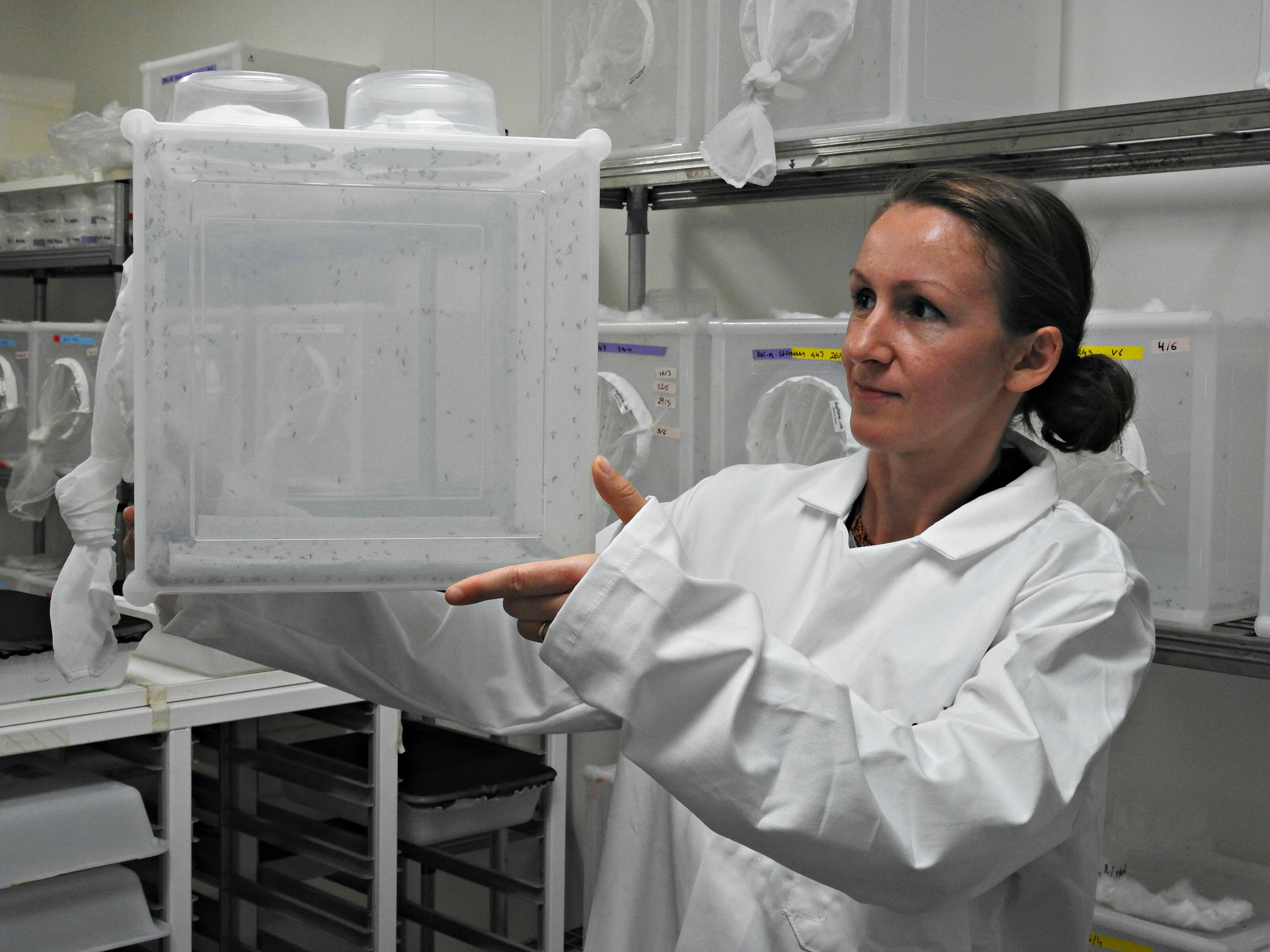
Improving methods to measure virus transmission in mosquitoes
Improving experimental estimation of mosquito virus transmission through model-guided design and non-destructive sampling using an Aedes aegypti-dengue system.
Mosquito-borne viruses, including dengue and Zika, cause globally important disease outbreaks. For any mosquito-borne virus, effective control, in part, requires the ability to identify the causes of an outbreak and predict the effects of variation in environmental conditions. Experimental infection of mosquitoes with virus plays a key role in understanding the transmission process and vector-associated causes of disease outbreaks. In particular, the time it takes for virus to reach the salivary glands (the extrinsic incubation period) can be estimated.
However, the temperature-dependence of the extrinsic incubation period has yet to be fully quantified for dengue virus, which is key to understanding and potentially mitigating outbreak risk.
With the aim of extending the models designed originally by Ronald Ross and George MacDonald, my project will develop and test a model-guided approach to designing experiments for quantifying the ability of mosquitoes to transmit viruses and the effects of temperature on this process. The model-guided approach will ensure experiments are statistically powered in a way that results can be used to inform mathematical models of mosquito-borne virus transmission.
The project will contribute to LSTM’s continued expansion into arbovirus research consolidating its position as an international leader in the field. The outputs will be relevant for all mosquito-borne virus systems, providing the foundation for future sustainable research that could lead to improved understanding of virus transmission risk and control.
Jennifer's profile can be found here